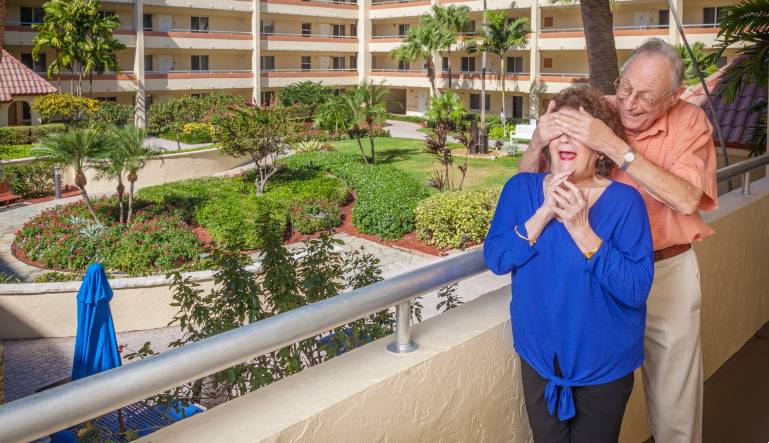It may seem like a good idea at first. Your aging parents deserve the highest quality of life and who better to provide it than you? After all, they helped raise you when you lived with them, so having them move in with you can feel like a way to give back.
There are significant challenges to taking care of older adults, though, that you may not have considered. Taking all of these pros and cons into account before you extend an offer is key to ensuring that your senior parents get the best care they need in a place that most feels like home. Here are the major ones to consider:
|
Pros and Cons of Senior Parents Moving into Your Home |
|
|
Pros |
Cons |
| 1. Saving Them Money: The economic challenges many older adults face make this choice seem like a more cost-effective option. And in some cases, it is. But it depends upon your aging parent’s needs. Make sure you fully understand how much help they will need and if you will need to seek outside help to meet their needs.
2. Spending More Time with Parents: As we all grow up and go on to live our own busy lives, finding quality time to spend with aging parents can become a challenge. Having a parent move in with you can provide you both with the luxury of connecting on a daily basis. And if you have children of your own, it sets a great example on the importance of taking care of family. |
1. Higher Household Expenses: Out-of-pocket caregiving expenses can total as much as $5,000 annually if your parent lives with you. This figure includes food, household goods, personal hygiene items, transportation, prescription medicines and other medical expenses. You may also need to hire a home health aide if you work full-time or if your parent needs round-the-clock care.
2. Home Safety Modifications: You may need to renovate your home for handicap access, such as widening doorways. Or you may need to modify your bathroom and install a step-free shower and grab bars, add handrails to staircases, or even add seat lifts in your living room. Download our FREE Guide to Home Safety for Seniors eBook to learn more. 3. Loss of Privacy: Having an aging parent move in can put a strain on your relationship with your spouse and your children. If you’re accustomed to certain family routines, you may need to find ways to incorporate your parent. It’s also important that you set boundaries and be honest about one another’s desire for privacy and space. 4. Loss of Independence: When an aging parent moves in with an adult child, they are likely to feel a sense of loss of independence and autonomy. The move may take them away from their social network, make it harder to see their friends and do their favorite social activities. It’s important not to make your parent feel like one of your children. At the same time, it’s fair to set rules and boundaries both parties can agree upon before the move. Make sure your spouse and your parent are both willing to compromise to make the arrangement work. |
The Five Star Difference: Safety and Independence for Your Loved One, Near You
After taking all of these pros and cons into account, you may decide that having your parents move in wouldn’t be in their best interest. Or, they may live with you already, and the time has come when you can no longer care for your aging parent under your own roof. You may feel that you’re letting them down by not being able to care for them yourself, but the greatest gift you can give them is personalized care that fits their needs, whether you can provide it or not.
Five Star Senior Living communities can help your parent maintain independence and enjoy a fulfilling lifestyle while receiving all the care they need in a place that feels like home with friends that feel like family. Plus, with over 100 communities available across the U.S., there’s likely one close by so you can visit your parents often. Find a community near you to learn more about how Five Star can help relieve the burden of care for your senior parents.
Contact Us Today
"*" indicates required fields

